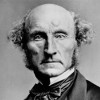“ A man's own particular share of the public interest, even though he may have no private interest drawing him in the opposite direction, is not, as a general rule, found sufficient to make him do his duty to the public without other external inducements. ”
John Stuart Mill, Considerations on Representative Government (1861). copy citation
| Author | John Stuart Mill |
|---|---|
| Source | Considerations on Representative Government |
| Topic | duty sharing |
| Date | 1861 |
| Language | English |
| Reference | |
| Note | |
| Weblink | http://www.gutenberg.org/files/5669/5669-h/5669-h.htm |
Context
“The universal observation of mankind has been very fallacious, if the mere fact of being one of the community, and not being in a position of pronounced contrariety of interest to the public at large, is enough to insure the performance of a public duty, without either the stimulus or the restraint derived from the opinion of our fellow-creatures. A man's own particular share of the public interest, even though he may have no private interest drawing him in the opposite direction, is not, as a general rule, found sufficient to make him do his duty to the public without other external inducements. Neither can it be admitted that, even if all had votes, they would give their votes as honestly in secret as in public.
"The proposition that the electors, when they compose the whole of the community, can not have an interest in voting against the interest of the community, will be found, on examination, to have more sound than meaning in it.”
source



